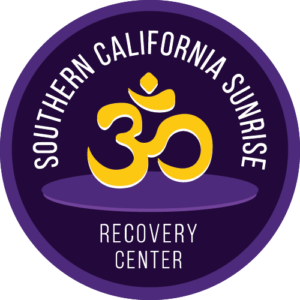Mixing medications with alcohol is a well-documented yet frequently underestimated risk in the context of addiction and substance abuse recovery. The combination of Ambien (zolpidem), a medication prescribed for insomnia, with alcohol is particularly concerning due to its severe, potentially life-threatening complications. Tres Vistas Recovery, an outpatient addiction treatment center, emphasizes the critical need to understand the risks of such combinations to ensure the safety and well-being of individuals grappling with substance abuse.
Research indicates that combining sedative hypnotics like Ambien with alcohol significantly increases the risk of adverse effects, such as overdose, compared to using either substance alone. This is because both Ambien and alcohol serve as central nervous system depressants, amplifying each other’s sedative effects, which can dangerously depress vital functions like breathing and heart rate. The dangers of mixing Ambien and alcohol include not just the immediate risk of respiratory failure or coma but also the impairment of cognitive and motor functions, leading to accidents and injuries. Additionally, this combination can cause complex behaviors like sleepwalking and memory blackouts, posing further risks to the individual’s safety and social well-being.
Tres Vistas Recovery stresses the importance of education and preventive strategies in addressing the misuse of Ambien and alcohol. The center advocates for a comprehensive approach to recovery, offering evidence-based treatments and supportive counseling tailored to the individual’s needs. Understanding the risks associated with mixing medications and alcohol is vital for anyone involved in the recovery process, highlighting the role of specialized care in overcoming addiction and fostering informed health decisions.
In essence, the combination of Ambien and alcohol is a dangerous intersection of risks that can lead to severe health and safety concerns. Through education, awareness, and professional guidance, individuals can navigate the path to recovery with the knowledge and support necessary to avoid the pitfalls of such hazardous combinations. For those struggling with substance misuse, outpatient addiction treatment provides a pathway to recovery, offering support and guidance tailored to individual needs.
Understanding Ambien and Its Purpose
Ambien, known generically as zolpidem, is a prescription drug designed to combat insomnia. As part of the sedative-hypnotics family, it operates by dialing down brain activity to facilitate sleep, particularly targeting the neurotransmitter GABA to decrease neuronal excitability. This mechanism helps users fall asleep faster, making Ambien a popular choice for those struggling with sleep onset rather than maintenance. Learning how to spot an alcoholic face can provide you with the knowledge and tools necessary to offer meaningful support and encourage treatment options like those available at outpatient addiction treatment centers. Recognizing early physical signs of alcohol abuse, such as changes in facial appearance, can be critical in identifying issues before they escalate into more severe complications.
One of Ambien’s key advantages is its quick action and short duration in the body, aiming to reduce the risk of next-day grogginess. However, it’s intended for short-term use, primarily due to concerns over dependency, tolerance, and the potential for complex sleep-related behaviors, such as sleepwalking. The prescription of Ambien necessitates careful consideration and strict adherence to a healthcare provider’s guidelines. Its use must be closely monitored to avoid adverse effects and ensure it’s employed in a manner that maximizes its benefits while mitigating risks. In essence, while Ambien presents a targeted approach to treating insomnia, its management requires a careful, informed strategy under professional guidance to optimize sleep health safely.
If you’re looking to support someone dealing with insomnia or substance misuse, particularly involving Ambien and alcohol, understanding the nuances of these conditions is crucial. Learning how to help an alcoholic who may also be misusing prescription medications can provide you with the knowledge and tools necessary to offer meaningful support and encourage treatment options like those available at outpatient addiction treatment centers.
The Risks of Mixing Ambien and Alcohol
Mixing Ambien (zolpidem) with alcohol significantly enhances the sedative effects of both substances, leading to an exacerbated reduction in mental and physical capabilities. This combination doesn’t merely add to the effects of each; it creates a synergistic impact where the resultant sedation is much greater than the sum of their individual effects. Such potentiation can drastically impair judgment, motor coordination, and the ability to perform basic tasks, increasing the risk of accidents and injuries. The intensified central nervous system depression can dangerously lower respiratory function and inhibit protective reflexes, raising the risk of serious consequences including respiratory failure and death.
Furthermore, the mix of Ambien and alcohol can cloud cognitive functions, causing confusion, disorientation, and memory lapses. Individuals may find themselves engaging in complex behaviors, like sleepwalking, with no memory of the activity, potentially leading to dangerous situations. The impaired judgment and diminished motor skills heighten the dangers of operating vehicles or machinery, with significant legal and safety implications. Awareness and understanding of these risks are critical for individuals using Ambien, underlining the importance of abstaining from alcohol to avoid these potentially life-threatening interactions.
Potential Side Effects and Dangers
The side effects of mixing Ambien and alcohol range from mild to severe, including:
- Dizziness and severe drowsiness
- Impaired motor control and coordination
- Memory problems and hallucinations
- Slowed or difficulty breathing
- Unconsciousness or coma
- Increased risk of overdose
The most alarming aspect of this combination is its potential to compromise respiratory functions. Both alcohol and Ambien can suppress breathing, and when taken together, the risk of slowed or stopped breathing increases significantly, leading to possible fatal outcomes.
Why People Might Mix Ambien and Alcohol
Individuals may inadvertently or intentionally mix Ambien with alcohol for various reasons. Some may not be aware of the dangers, while others might seek an enhanced sedative effect to cope with insomnia or other underlying issues. Regardless of the intent, the consequences can be dire, underscoring the need for education and awareness.
The Role of Addiction Treatment Centers
Tres Vistas Recovery, with its focus on outpatient addiction treatment, plays a crucial role in addressing the misuse of substances like Ambien and alcohol. Treatment centers offer educational resources, counseling, and tailored treatment plans to help individuals understand the risks and work towards recovery. They provide a supportive environment for individuals to explore the root causes of their substance use and develop healthier coping mechanisms.
Seeking Help for Substance Abuse
Recognizing the signs of Ambien and alcohol misuse is the first step toward recovery. Symptoms of misuse may include:
- Using the medication in higher doses or more frequently than prescribed
- Consuming alcohol to enhance the effects of Ambien
- Experiencing withdrawal symptoms when not using the substances
- Continued use despite negative consequences to health, relationships, or responsibilities
If you or someone you know is struggling with the use of Ambien and alcohol, it’s imperative to seek professional help. Tres Vistas Recovery offers a range of services tailored to individuals facing substance abuse challenges. The center provides a supportive, non-judgmental space for recovery, emphasizing the importance of addressing both the physical and psychological aspects of addiction.
Addiction Treatment at Tres Vistas Recovery
The dangers of mixing Ambien and alcohol cannot be overstated. This combination poses severe risks to an individual’s health and well-being, including the potential for fatal outcomes. Education, awareness, and professional intervention are key to preventing and addressing the misuse of these substances. Tres Vistas Recovery remains committed to assisting individuals on their journey to recovery, providing the tools and support needed to overcome addiction and reclaim control over their lives.
Through understanding, compassion, and expert care, recovery is not just a possibility; it’s a path forward for those ready to walk it. If you’re facing challenges related to the use of Ambien, alcohol, or any other substances, reach out to Tres Vistas Recovery. Together, we can navigate the complexities of addiction and work towards a healthier, substance-free future.

Tracey Kane is an Associate Marriage and Family Therapist and Assistant Clinical Director at Tres Vistas Recovery. With over 11 years of experience in the field of addiction treatment, Tracey has dedicated her career to helping individuals struggling with substance abuse and mental health issues.












